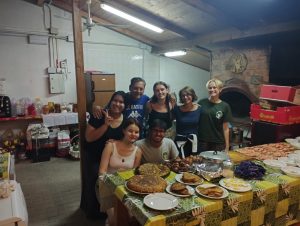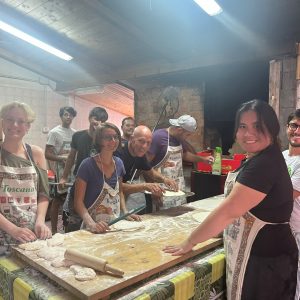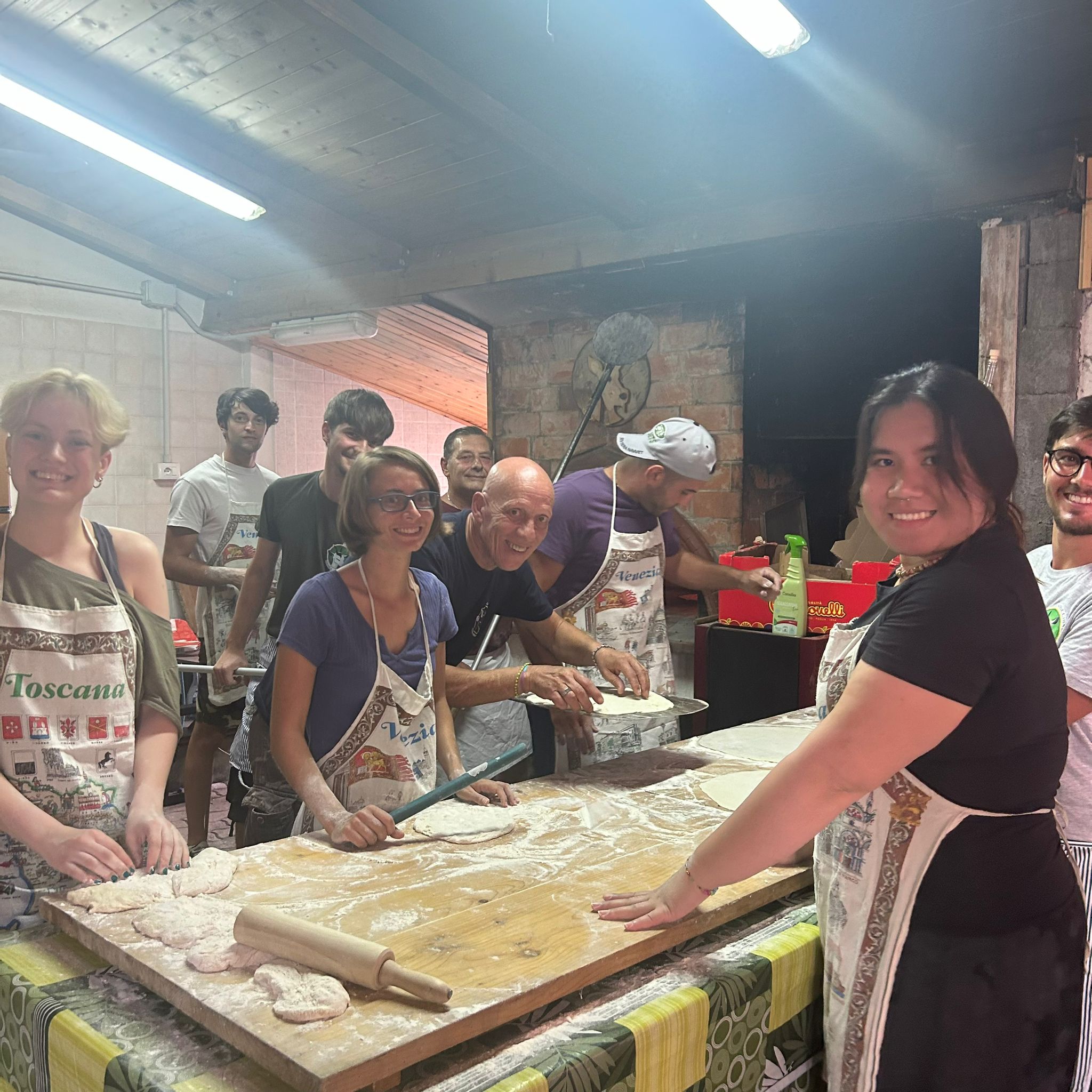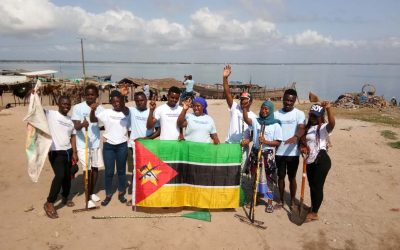Intercultural dialogue
Capricchia, a place of resilience and dignity
Workcamp
Written by Elisa from Italy
My name is Elisa, I’m 24 years old and a student. This summer, in the second half of August, I participated in a volunteer camp in Capricchia, a small village near Amatrice in central Italy, about two hours from Rome. This project is part of a larger initiative to support the local community affected by the earthquakes in August 2016 and January 2017.
The association that hosted us, Pro Loco of Capricchia, is vital to the community. They organize various events and are actively working to help the village rebuild socially and economically. The members of Pro Loco include both residents and people from Rome who have a deep connection to the place and have been visiting it for years or even since childhood. During the earthquakes, Pro Loco was a lifeline, opening its doors to those in need and expanding its resources to support those affected.
My decision to attend this camp came from a desire to better understand the reality and needs of my own country and to contribute in any way I could. Before I left, I attended a training course organized by the SCI in Bologna in June, where I learned more about international cooperation, and one of the two trainers introduced me to the Capricchia project. I wanted to stay in Europe, and although I was considering a camp in Denmark, I felt that Capricchiaoffered a unique opportunity to connect with an Italian community that I had only heard about, and that was and is facing great challenges.

Besides that, I wanted to experience a cultural exchange, and the group of volunteers I worked with was very diverse. There was another Italian, two girls from Russia, a girl from Spain, and another one from Laos who studied in Poland. This cultural mix enriched our experience, as we were able to exchange ideas, learn from each other and broaden our horizons. We were all around the same age, between 20 and 29.
When I arrived in Capricchia, I was warmly welcomed by our camp coordinator, Giacomo, who had arrived just a few hours earlier, and Roberto, the president of Pro Loco, and his wife, Silvia. The camp lasted about ten days, and during this time, we slept partly in tents (which had already been set up for us) and partly in small wooden houses in the village. These houses, built in Capricchia, had beds to sleep in, and we all shared a kitchen and a bathroom.
Our volunteer group quickly bonded and shared a common interest in learning more about each other’s cultures. The Capricchia community also showed great interest in our stories, which led to an international dinner when each of us prepared a typical dish from our home country.

Our work schedule was flexible and adapted to the needs of each day. Some days were lighter, so we had plenty of free time to rest or hike in the beautiful Laga Mountains. On other days, especially during evening celebrations in the village, we were busy most of the day, often helping to prepare meals for large gatherings. Among other things, we worked on the maintenance of the buildings, treated the wood to protect it from rain and weather damage, and also helped with cooking during the local festivals.
We cleaned a fountain and cleared a path on the mountain in preparation for a festival planned for September. The festivals and events organized by Pro Loco are important moments of social engagement. On the last day of our camp, there was a festival with local dishes and folk songs that I remember fondly. These festivals bring people together. We all participated in preparing traditional food and local activities. Observing the joy and community cohesion at these gatherings made me realize how important such events are in creating bonds and fostering a sense of belonging to the land.
Although the earthquake occurred in 2016, I have noticed that its memory is still fresh in people’s minds. Carmen, Roberto’s partner (another Roberto, not the president), lived in Amatrice at the time but is originally from Capricchia. She spoke of her ongoing fear of moving back into a concrete house, a fear that reflects the deep trauma still felt in the community. Some people have chosen to stay, while others have moved away, leading to a depopulation problem in the Amatrice area.
Despite the difficulties and the challenges they still face, I sensed a strong community spirit among the residents, who have been living together in makeshift conditions and sharing spaces and resources since the earthquake.
The day after our arrival was the anniversary of the earthquake (August 24, 2016). On this day, the locals gathered to mourn and commemorate, and we respected their need for reflection. During our stay, we also visited Amatrice, just a few kilometers from Capricchia, where we witnessed the effects of the earthquake first-hand and gained a better understanding of the current situation. Despite the many years that have passed, the slow pace of reconstruction is still clearly noticeable.
What struck me most was the dignity and resilience of the people we met. Despite the difficult conditions, there was a strong desire to share their stories. The community also expressed disappointment with the support from Civil Defense and the state, explaining that, at times, these institutions were more of a barrier than a help. The people of Capricchia emphasized that locals understand their needs better than anyone else, and they expressed deep gratitude for the support from private individuals across Italy. These people approached the affected population directly, bringing essential goods and offering their services free of charge. This got me thinking about how important it is to engage directly with those affected to provide meaningful and effective help; otherwise, you risk being more of a burden than a support.
My experience in Capricchia was not only an opportunity to offer my help but also a chance to learn and reflect. I realized that there are also needs and stories of resilience in our national communities that deserve attention. I left Capricchia with a heart full of gratitude, a renewed sense of hope and energy knowing that I had experienced a significant and transformative moment in my life.
You can still join!
Want to have your own volunteer experience for peace?
Read more Voices of Volunteers





